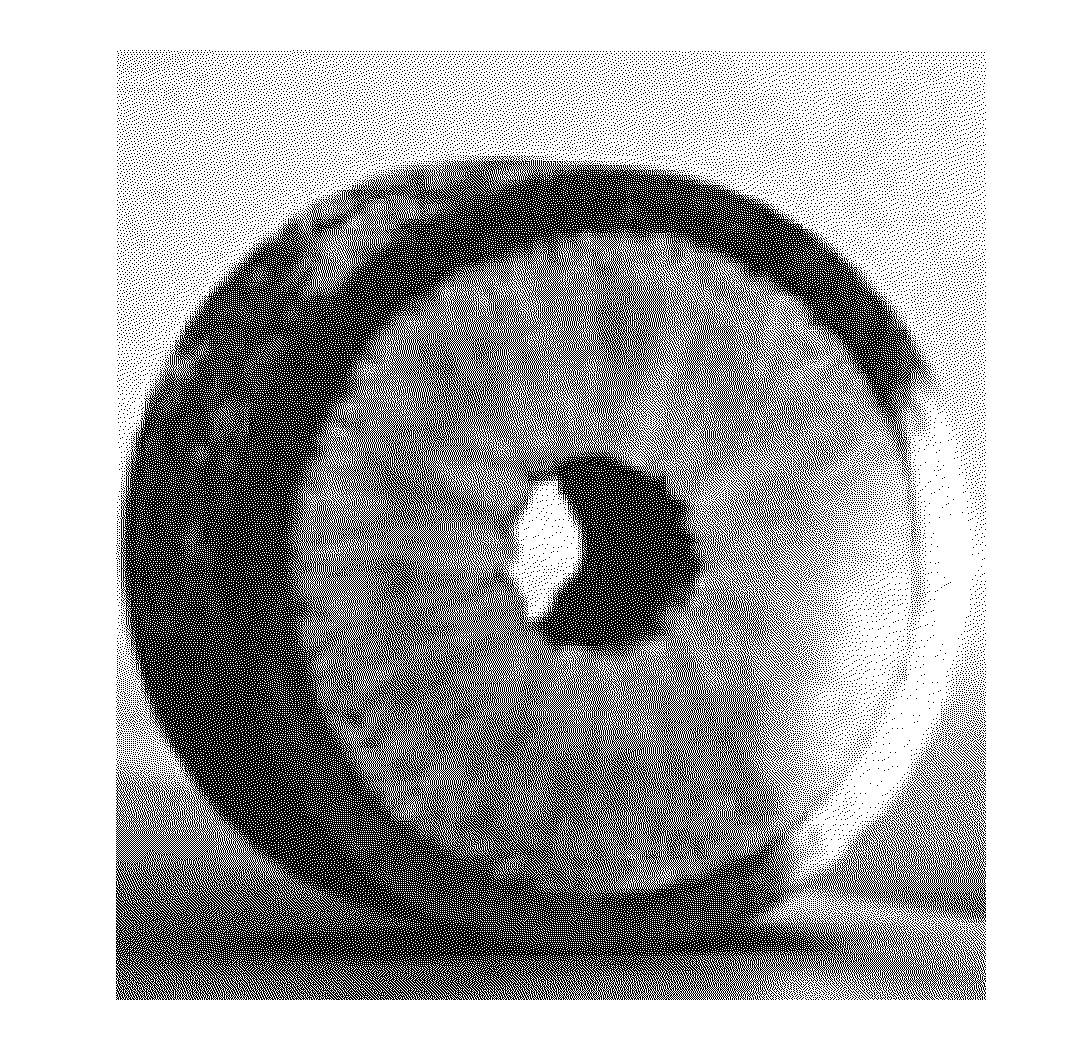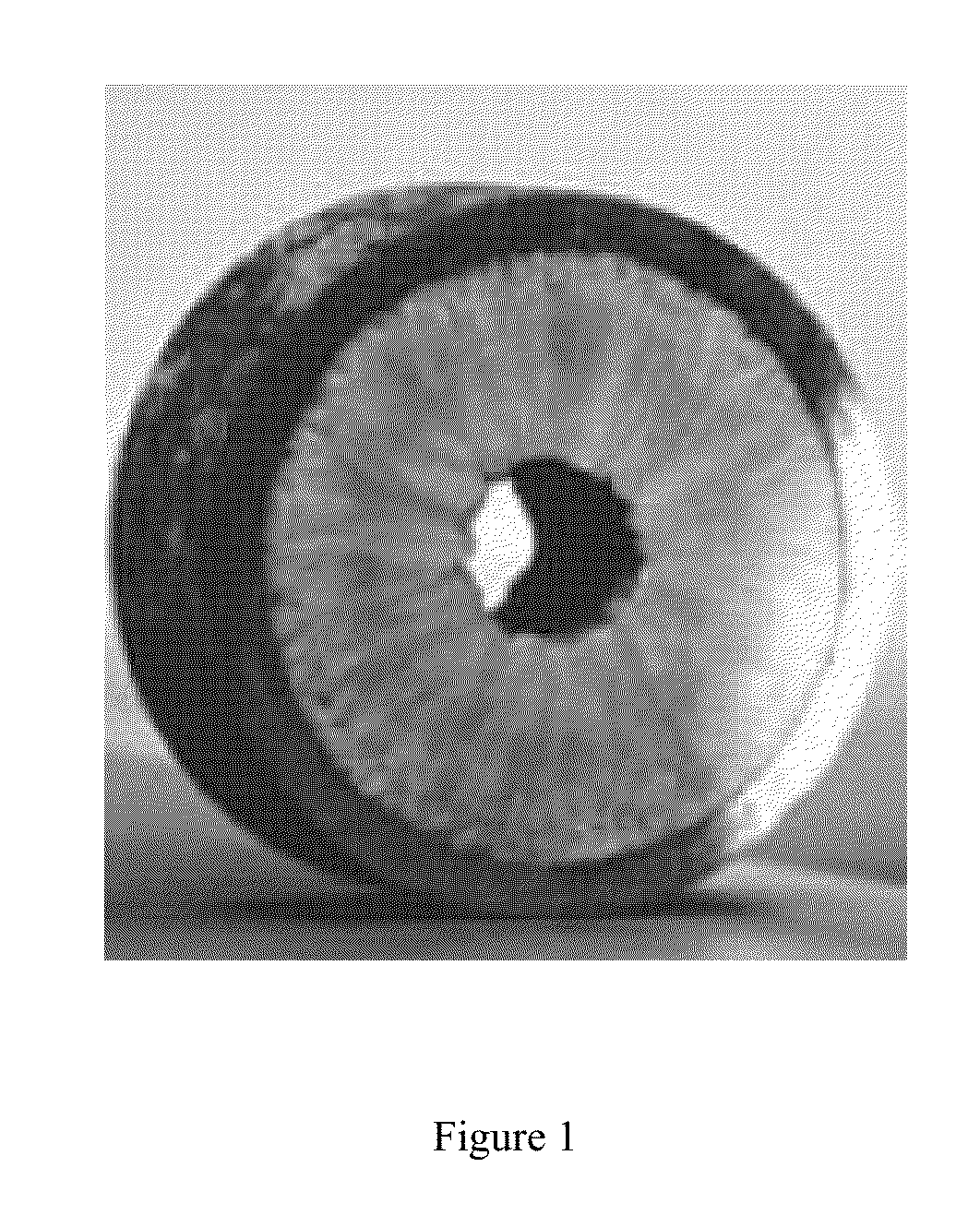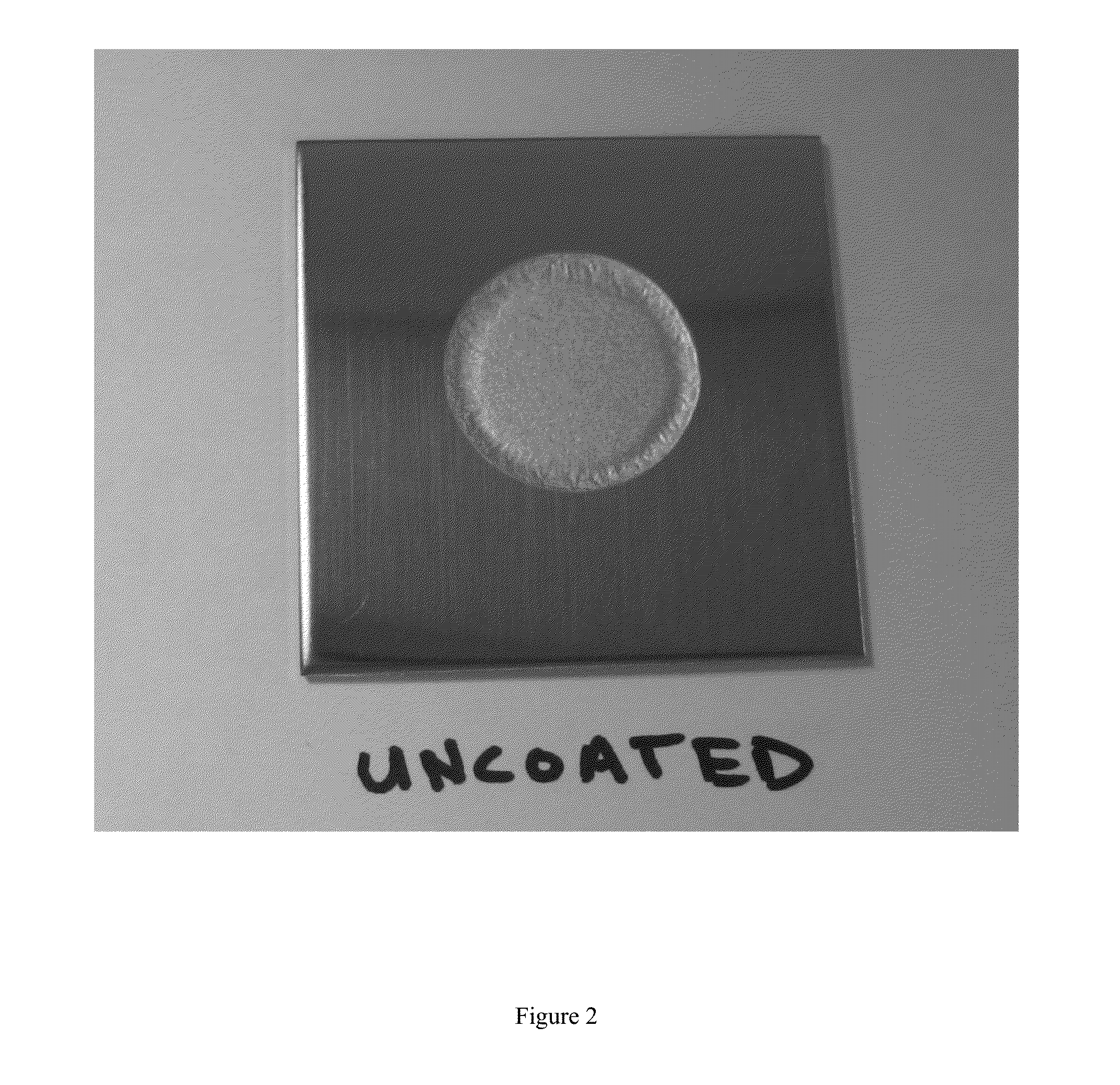Under certain operating conditions of these processes, surface degradation of a component can result from many causes.
During operation, various industrial
process systems suffer degradation to the working sections of the
system being attacked by various chemicals and conditions.
In any continuous or intermittent process system there is the risk of surface degradation due to the
exposure of materials to certain chemicals and conditions.
The surfaces exposed to the process may degrade due to the material itself degrading, eroding, or corroding, or the degradation may be in the form of deposits that accumulate on the material, affecting performance of one sort of another, e.g. flow efficiency through a
pipe.
As another example, tanks used to hold various chemical materials may experience material deposits or reactions on the inner surface of the tank, which can adversely affect the overall
process efficiency.
In yet another example, an
exhaust valve for use in an
internal combustion engine may be made from a particular
alloy in an effort to reduce the amount of carbon deposits forming on its surface; carbon deposits are a well known source of operational and emission problems for internal
combustion engines.
Many industrial processes use materials to contain and transport various fluids, slurries, or vapors, and those materials can become degraded during use.
These problems are known as “
flow assurance” issues, which is the industry term for the growth of flow restrictions in various pipes, tubes, heat exchangers, and process containers, etc.
In one example of this problem, crystals of various elements may grow during fluid
processing operation because certain exposed molecules within the material surface of the interior of a conduit serve to catalyze the growth of some types of fibers on the interior wall of the conduit.
When the
pipe material becomes saturated with carbon,
amorphous carbon fibers begin to grow rapidly at process temperatures in the range of about 400° C. to about 800° C. Such deposits and / or fibrous growths affect the boundary layer development of the fluids and / or vapors passing through the
pipe's interior, and can cause a significant restriction in the pipe's ability to transfer fluids, vapors, or slurries.
Furthermore, a corrosive environment, especially due to the presence of water and impurities or salts dissolved in it, cause
corrosion of metal pipes leading to eventual failure.
Also, it is known that
petrochemical process fluids flowing through a metal tube at high temperature can cause metal wastage in what is known as
metal dusting, wherein the tube's inner surface is eroded by various mechanisms.
Some components, such as heat exchangers, can experience deposits from the processed fluid and from the heat exchange medium, thereby experiencing
fouling on multiple interior surfaces.
Other components, such as pipelines, can suffer
corrosion on outer surfaces due to process and / or environmental factors.
The repairing of such problems has large costs associated with it due to interruption of production while sections of a process system are identified and then cleaned, bypassed, and / or replaced.
The
petroleum industry, for example, has literally thousands of miles of connective pipelines, tubes, manifolds, as well as thousands of heat exchangers and process risers, etc. that require regular maintenance and repair at great costs to the industry.
For example, shutting down a
petroleum refinery to repair and / or replace flow restricted pipes results in losses of approximately $200,000 to $500,000 per day of lost output.
Attempts to prevent
hydrate formation typically involve injecting additives into the process fluid, but this can be a costly solution.
Deposits on the interior surface of a pipe have significant negative
impact on the pipe's ability to transfer fluids or gases, and these results can vary depending on the
surface roughness of the deposit.
Scaling degrades the
process efficiency by plugging sand screens and production pipe, by causing failures in valves, pumps, heat exchangers, and separators.
Scaling may also block transportation pipelines.
Furthermore,
combustion buildup known as
slag or scale often forms on the
flame-heated surfaces of furnaces, boilers, heater tubes, preheaters, and reheaters.
That buildup decreases
heat transfer through the surface to the substance being heated, and therefore wastes energy.
Also, such combustion buildup increases the applied temperature necessary to cause the substance to achieve a desired temperature.
That increased temperature stresses the boiler vessel, and may lead to material failure.
In some applications, the surfaces exposed to fluid flow may become degraded by the nature of the fluid itself, for example, in the case of
hydrogen transport and containment, which has the associated problem of
hydrogen embrittlement of the exposed materials.
By necessity, those sensors inhabit the process material, and are subject to those
fouling mechanisms inherent in the processes they monitor.
Unfortunately, even the smallest degree of fouling may affect the accuracy of a sensor, even if that same degree of fouling has only a negligible effect on the process itself.
Sensors represent high value components, and frequent sensor replacement adds significant costs in addition to production loss due to
shut down for sensor replacement.
In particular, vacuum columns, fluid catalytic crackers, cokers,
viscosity breakers, and any equipment handling heavier oil fractions at high temperatures suffer from the buildup of
coke.
Also, the high-temperature environment of an
ethylene cracker causes
polymerization of carbon-carbon double bonds, the product of which condenses and forms
coke upon further heating.
When the system is
shut down and cooled for decoking or other maintenance, the weakened metal can crack or
spall.
In some cases, the carburized metal can
spall at process temperatures, resulting in
metal dusting mentioned above.
In addition to reducing process
throughput,
coke buildup decreases
heat transfer, requiring higher process temperatures consuming more energy and lowering equipment lifetime.
Coke deposits can cause uneven heating, forcing the use of lower temperatures to avoid safety issues.
In addition, shutting down those systems to decoke stops production.
System shut downs and restarts cause thermal stress and increase the likelihood of system malfunctions and material failure.
As it is, many process temperatures are limited by the
metallurgy of the heater tubes.
In particular,
hydrogen sulfide (H2S) attacks metal surfaces, causing the formation of iron sulfates that flake from
hydrocarbon-contacting surfaces, reducing the thickness and strength of
process equipment, clogging passages, and potentially diminishing the activity of catalysts downstream.
Ironically, H2S is added to process streams to reduce
metal dusting and other forms of fouling; yet H2S itself causes
corrosion.
As
petroleum resources become less plentiful and more expensive, renewable sources of hydrocarbons increase in importance.
However,
biodiesel refining presents unique challenges to refining equipment.
Surfaces that become contaminated with debris during
process operation often adversely affect the efficiency and / or functionality of the process itself.
These methods involve considerable time and effort on the part of
process plant maintenance personnel, reducing output or
throughput of a system and causing the associated loss of revenue to the
plant.
Similarly, in
powder metal spraying operations,
chemical attack occurs within the spraying chamber that rapidly degrades its interior surfaces.
Portions of fluid processing and transport systems exposed to the environment, especially those containing iron, also experience corrosion from environmental factors.
 Login to View More
Login to View More 


